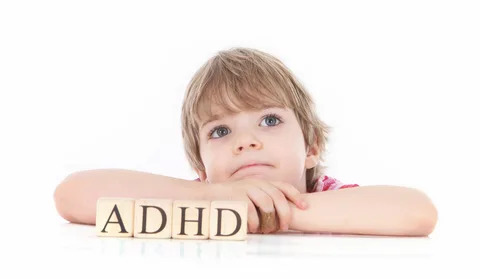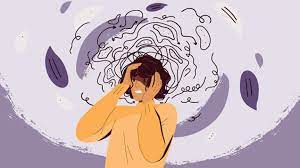 Content Gap Analysis – Find What Competitors Are Missing!
Content Gap Analysis – Find What Competitors Are Missing!
Navigating ADHD Treatment: Medication Options and Side Effects
Written by john » Updated on: June 17th, 2025

Attention-deficit/hyperactivity disorder (ADHD) is a neurodevelopmental illness with symptoms of inattention, hyperactivity, and impulsivity. Managing ADHD often necessitates a multimodal strategy, with medication being one of the key treatment options used to ease symptoms and improve performance. Navigating the many medication alternatives and recognizing their potential adverse effects can be difficult for ADHD patients and their caretakers. This article will provide a complete overview of the function of medicine in managing ADHD symptoms, including an examination of several medication alternatives and their associated adverse effects.
Understanding ADHD and the need for treatment.
ADHD is a widespread psychological illness that affects both children and adults. It can have a substantial impact on many elements of daily living, including academic achievement, work productivity, and social connections. Individuals with ADHD may struggle to keep concentration, stay organized, complete tasks, and manage their impulses. If these symptoms are not treated, they can have a significant negative influence on their quality of life.
The use of medication in managing ADHD symptoms
Medication is a key component of ADHD treatment and is frequently prescribed as part of a comprehensive management strategy. While medication cannot cure ADHD, it can significantly reduce symptoms and improve functioning in many people. Medication works by targeting neurotransmitters in the brain, specifically dopamine and norepinephrine, which play important roles in attention, impulse control, and executive functioning.
Types of ADHD Medications
There are various types of drugs used to treat ADHD, including stimulants, non-stimulants, and others. Each class operates differently in the brain and may be recommended based on individual requirements, preferences, and tolerance.
Stimulant medications
Stimulant medicines are the most widely used and well-established treatment for ADHD. They function by raising dopamine and norepinephrine levels in the brain, thereby improving attention and focus. Stimulant drugs are available in both short-acting and long-acting formulations, allowing patients more dosing possibilities.
Methylphenidate is a regularly prescribed stimulant medicine available in a variety of forms, including Ritalin, Concerta, and Daytrana (transdermal patch). It is frequently regarded a first-line medication for ADHD due to its efficacy and quick onset of action.
Amphetamine-based drugs, such as Adderall and Vyvanse, are commonly used to treat ADHD. These drugs are available in both immediate-release and extended-release forms, allowing for long-term symptom control with a once-daily dose.
Non-stimulant medications
Non-stimulant drugs may be used as an alternate therapy option for people who do not respond well to or cannot take stimulant medications. Non-stimulant drugs function by targeting different neurotransmitters in the brain and have a slower onset of action than stimulants.
Atomoxetine, often known as Strattera, is a nonstimulant medicine licensed to treat ADHD in children, adolescents, and adults. It works by decreasing norepinephrine reuptake, resulting in higher levels of the neurotransmitter in the brain. Atomoxetine may be especially effective for people who have concomitant anxiety or tics because it does not worsen these symptoms, as stimulant medicines may.
Guanfacine (Intuniv) and clonidine (Kapvay) are alpha-2 adrenergic agonists that are occasionally used off-label to treat ADHD symptoms, particularly in those who have not responded to other drugs or who have major side effects from stimulants. These drugs may be especially useful for controlling hyperactivity and impulsivity.
Other medications
In addition to stimulants and non-stimulants, various drugs may be used as adjuvant therapy for ADHD or to address specific symptoms, such as depression or sleep difficulties, which frequently co-occur with ADHD.
Antidepressants:
People with ADHD who also have depression or anxiety symptoms may be offered antidepressant drugs such as selective serotonin reuptake inhibitors (SSRIs) or tricyclic antidepressants (TCAs). These drugs can help to improve mood and minimize emotional dysregulation.
Sleep Aids:
Individuals with ADHD frequently experience sleep problems, and drugs such as melatonin or prescription sleep aids can be used to treat insomnia or enhance sleep quality.
Navigating Medication Side Effects
While medication can be quite beneficial in managing ADHD symptoms, it is critical to be informed of the potential side effects and dangers involved with therapy. Side effects vary based on the medication and the individual, including dosage and tolerance.
Common side effects of stimulant medications
Stimulant drugs are generally well tolerated, although some people may experience side effects, particularly while starting or modifying their dosage. Stimulant medicines commonly cause the following negative effects:
Insomnia:
Stimulant drugs can disrupt sleep, particularly if used late in the day. Changing the schedule of medicine dosages or using a sleep aid may help alleviate this side effect.
Decreased Appetite: Stimulant medicines can reduce appetite, resulting in weight loss or trouble maintaining a healthy weight. Having regular meals and snacks throughout the day can help to alleviate this side effect.
Irritability or Mood Swings:
Some people may experience mood swings or irritability while taking stimulants. If these problems persist, you may need to adjust the dosage or investigate other drugs.
Side Effects of Nonstimulant Medications
Non-stimulant drugs may also induce negative effects, but they are less prevalent and severe than stimulants. Non-stimulant drugs may have the following side effects:
Nausea or upset stomach:
Non-stimulant drugs such as atomoxetine may cause gastrointestinal symptoms such as nausea, vomiting, or abdominal pain. Taking medications with food or changing the time of doses can help to reduce these side effects.
Some people may suffer dizziness or exhaustion when they start taking non-stimulant drugs. These adverse effects usually improve with time as the body responds to the medicine.
Managing Side Effects
If you or your kid have side effects from ADHD medication, you should contact your doctor. They can help you change your dosage, switch to a different drug, or propose ways for efficiently managing side effects. It is critical not to quit medicine abruptly without first consulting a healthcare expert, since this can result in withdrawal symptoms or reappearance of ADHD symptoms.
Conclusion
ADHD is a complicated neurodevelopmental disease that frequently necessitates a multimodal therapy strategy for optimal management. Medication is essential for easing symptoms and enhancing functioning in ADHD patients. Individuals with ADHD and their caregivers can make more informed treatment decisions by understanding the many drug options available, such as stimulants, non-stimulants, and supplementary medications. It is critical to collaborate closely with a healthcare professional to evaluate pharmaceutical effects, change dosages as necessary, and treat any adverse effects that may occur. Individuals with ADHD can successfully explore treatment options and enhance their quality of life with the right counsel and support.
Note: IndiBlogHub features both user-submitted and editorial content. We do not verify third-party contributions. Read our Disclaimer and Privacy Policyfor details.
Copyright © 2019-2025 IndiBlogHub.com. All rights reserved. Hosted on DigitalOcean for fast, reliable performance.











